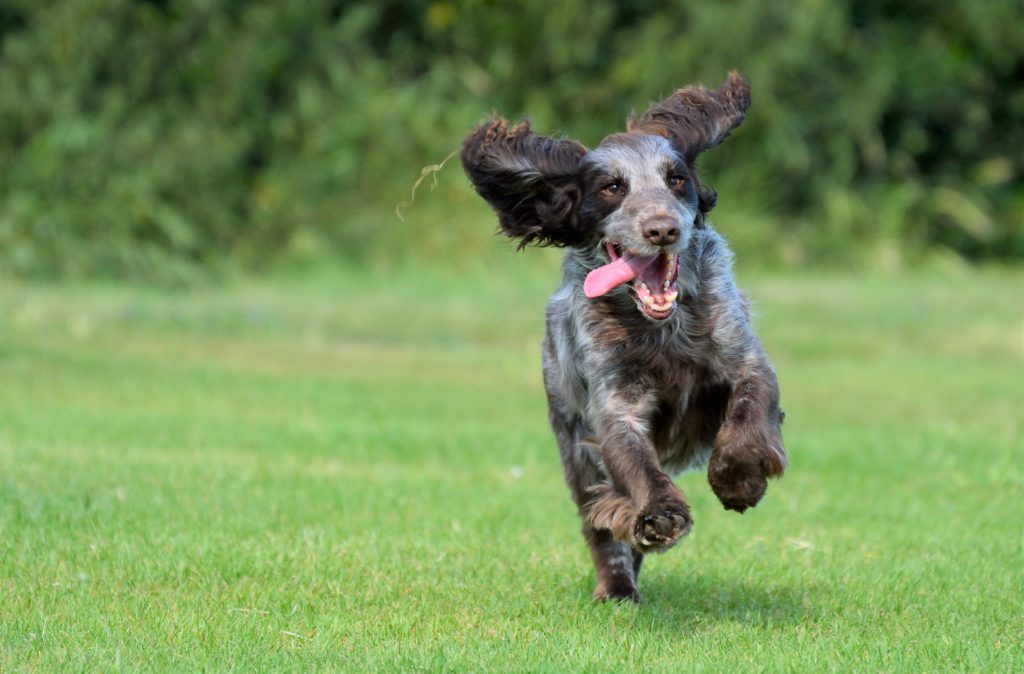Everything You Need to Know About the Cocker Spaniel: The Working Variation

The Cocker Spaniel is a breed that has captured the hearts of many dog lovers worldwide, but within this breed, there exists a particular type that stands out for its versatility and working abilities: the Working strain. Known for their intelligence, athleticism, and friendly disposition, these dogs make excellent companions for hunters and active families alike. In this blog, we’ll explore the unique characteristics, training, and care associated with the Cocker Spaniel, specifically focusing on the working variation.
Understanding the Cocker Spaniel
Originating from the United Kingdom, the Cocker Spaniel was bred to assist hunters in flushing out game. Over the years, two distinct types of Cocker Spaniels have emerged: the Show variety and the Working variety. While both share a common ancestry, the WCS has been selectively bred for function, focusing on stamina, agility, and a strong work ethic. They live to hunt and it is an important trait that pet owners understand and harness.

Key Physical Traits:
- Size: Typically, they stands approximately 36-56cm tall at the shoulder and weighs between 9-15kg however can be bigger.
- Coat: They boast a beautiful, medium-length coat that can be wavy or flat, requiring regular grooming to maintain its splendour and prevent matting. After spaying or castration this coat can often become longer and fluffier.
- Colour: They come in a variety of colours, including black, liver, red, gold and combinations like black and tan or roan but never merle. If a cocker is merle it will definitely have had other breeds introduced to its pedigree as it is not a naturally occurring colour.
Temperament of the Cocker Spaniel
Cocker Spaniels, particularly the working variety, are known for their friendly and affectionate nature. They are social dogs that thrive on companionship and interaction with humans and other pets. Their eagerness to please makes them highly trainable, but it also means they can become bored if not adequately stimulated. It is essential that their drive to work is fulfilled. This does not necessarily have to be as a working gundog but it needs to use their natural drives and brains.
Training Your Cocker Spaniel
Training is essential for any Cocker Spaniel, especially if you want to harness their natural hunting instincts. Here are some tips for effective training:
- Start Early: Begin training and socialisation as early as possible. Expose your Cocker Spaniel to various environments, people, and other animals to foster confidence and adaptability.
- Focus on Basic Commands: Teach essential commands such as loose lead walking, sit, stay, come, and leave it. These commands are foundational for ensuring your dog is well-behaved and responsive.
- Incorporate Specialized Training: If your spaniel is intended for hunting, integrate specific training for retrieving and hunt work. Engaging activities will help refine their natural instincts as well as introducing self control.
- Engage Their Minds: Cocker Spaniels are intelligent and require mental stimulation and thrive with training.

Exercise Requirements
An active breed, the Cocker Spaniel thrives on physical and mental activities. Aim for at least an hour of exercise/training each day. Fun activities can include:
- training walks
- retrieving exercises
- Swimming in a safe area
- Engaging in obedience, gundog training or agility training (after a year old)
Health and Maintenance
Like all breeds, they can be prone to certain health issues. Regular veterinary check-ups and good preventative care are essential for a long and healthy life. Common health concerns may include:
- Ear infections: Due to their floppy ears, require regular ear cleaning to prevent infections.
- Hip dysplasia: A genetic condition that affects joint health, regular vet visits can help catch this early.
- Eye problems: Conditions like cataracts and progressive retinal atrophy can occur, so eye health should be monitored.
Ensuring your puppy is fully health tested can minimise the likelihood of genetic aliments.
Grooming is another vital aspect of maintenance. Regular brushing helps keep their coat healthy and minimizes shedding and avoids matting.

Conclusion
The Cocker Spaniel, especially the working variation, is a breed that offers a perfect blend of companionship, intelligence, and athleticism. With the proper training, socialisation, and care, a Cocker Spaniel can thrive whether accompanying you in the field or as a beloved family pet. If you are looking for a loyal and spirited companion, the Cocker Spaniel might just be the perfect fit for your lifestyle! If you want to know more about the breed and whether they are a good fit for you, we are more than happy to speak to prospective owners. Contact us here.
Around the circle
I am part of an amazing blog circle with other canine professionals, please click the link below to see the Finchley Dog Walkers blog about their favourite breed
Finchley Dog Walker’s Blog – Why collies are my favourite breed
